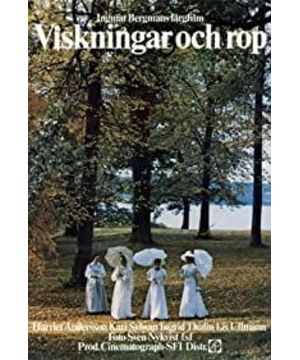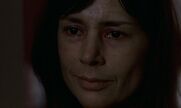Although the second sister Maria is married, she is still unable to get rid of the troubles of her relationship, and she is torn between her husband and her sister's doctor.
The older sister Karin also has her own troubles and troubles that are difficult to sort out.
Between the three sisters, the estrangement is deep, they all have their own problems, and it is difficult to communicate with each other. Agnes passed away silently under the torture of body and mind. Her death made the living realize the problem among them.
The "shouting" in the film means that the characters want to break through the barriers of the soul, speak out loudly, and reveal the depression and resentment buried in the bottom of their hearts. At the same time, the opposite "whisper" is used to describe the display and reaction of their static characters.
In terms of emotional mobilization, the work draws on the charm of background music to make footnotes for the interpretation of the characters' complex relationships and spiritual monologues. The wonderful sounds like the sounds of nature are precisely the whispers of the characters' inner confidants, which are intriguing, and the silent and better than the sound atmosphere created is better than all futile confessions. In the film, in the scene of Maria and Karin reconciling, the two did not say a word, but they could feel the closeness of each other's hearts. At this time, the background music is Bach's Cello Suite. As Peter Harcourt said, "We can't help being moved sometimes by convincing film plots, but at the same time we are delighted, because in other things we can feel the artist's impact on various occasions. control".
The film was screened outside the Cannes Film Festival in 1973 and sold well in the UK and the US. The Soiree de France praised Ingmar Bergman's 31st film as a "masterpiece of masterpieces". Famous French director Frédéric Truffaut also called the film "a rare masterpiece in the history of postwar cinema".
View more about Cries & Whispers reviews











